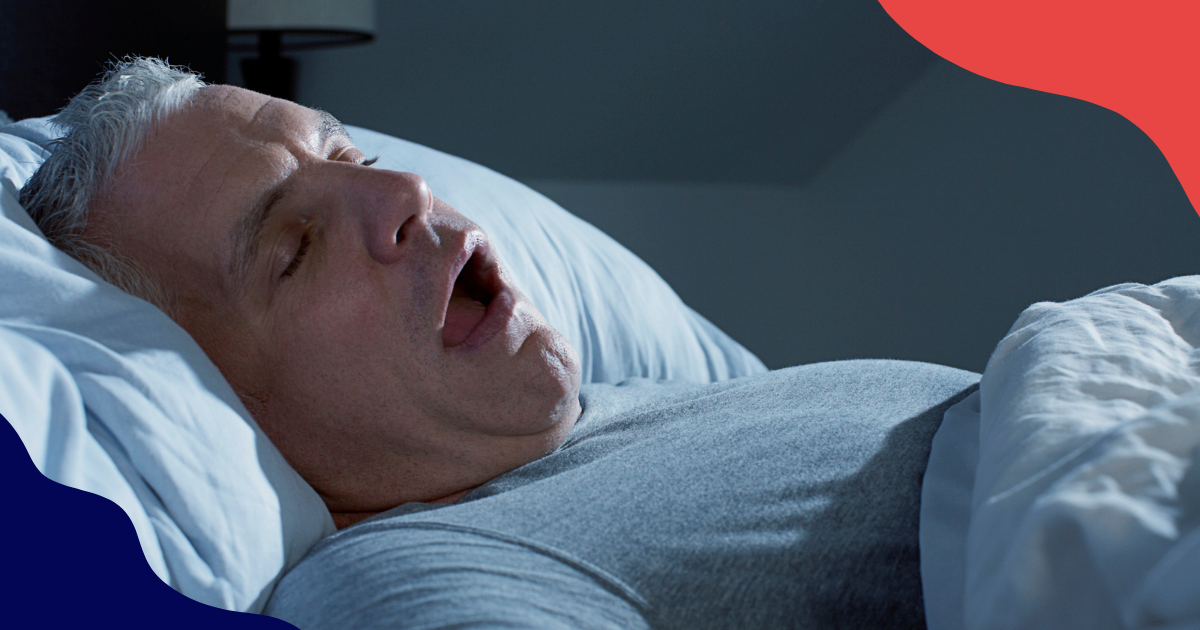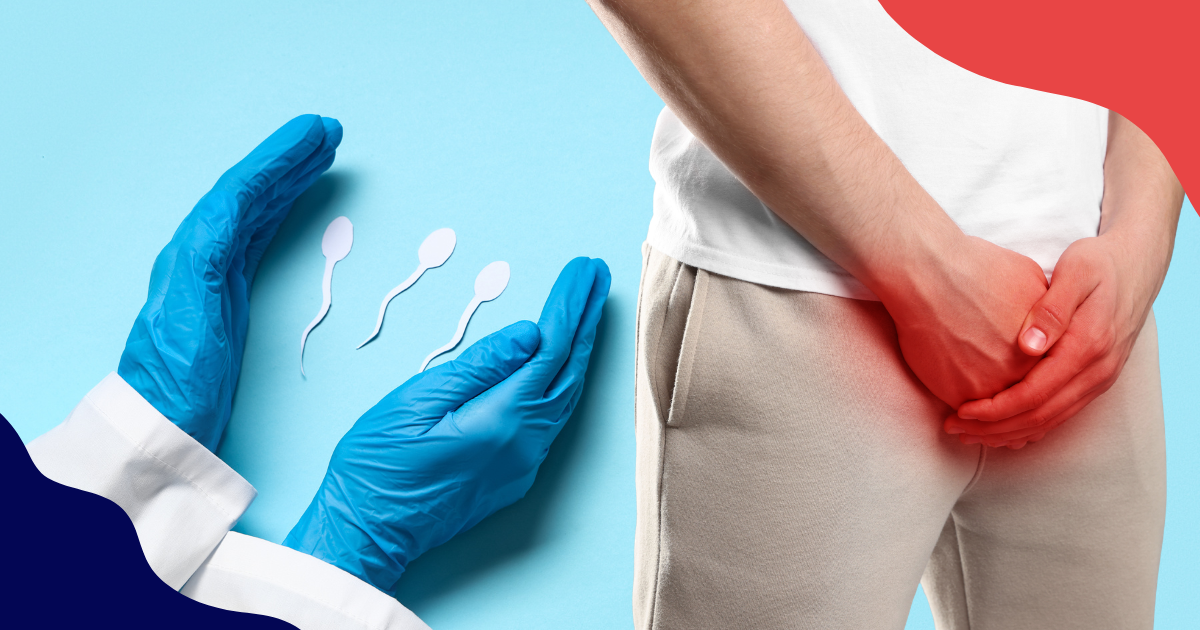Experienced losing an erection in the middle of sex? That’s perfectly normal! However, if it’s constant, it may be erectile dysfunction. This article delves into what causes loss of erection during sex, whether it’s a natural phenomenon or a health issue like erectile dysfunction.
The Erectile Process

To uncover why you are experiencing loss of erection during sex, you must first understand the erectile process. Erections start with stimulation, be it physiological or psychological. For example, you may engage in physical touch, which gives you pleasure. You may also be getting turned on mentally by witnessing something that you find sexually attractive. The brain perceives this arousal, a spike in excitement, and sends a signal to your reproductive system.
Since you’re getting aroused, you may experience an increase in testosterone while your penile blood vessels “dilate” or widen. The relaxation of your blood vessels allows for increased blood flow in your penis, causing it to swell or become bigger. Under normal circumstances, the blood remains trapped inside because of the continuous pressure in the area, leading to what is called an “erection.” This means that a man will typically remain hard for as long as he is aroused.
What Causes Loss of Erection During Sex?
Multiple factors can disrupt the erectile process, leading to erectile struggles in the bedroom. A lot of these can be “normal,” which means that they don’t indicate a health problem. Here are some of the reasons for your sudden loss of erection during sex:
Decreased physical stimulation
You need to stay in a state of arousal to remain hard. If the reason for your arousal is due to physical stimulation, any interruption or lessening of the sensation may result in weakening or outright loss of erection. Usually, men are also aroused mentally, so you won’t necessarily lose an erection just because you’re changing positions during sex.
Loss of mental arousal
Lack of physical stimulation aside, a bigger trigger in losing your erection is the loss of mental arousal. If you suddenly get turned off by something your partner did, it’s normal to lose your erection. Similarly, it would make sense to lose your erection because your partner isn’t reciprocating your sexual arousal. It could be because they simply aren’t in the mood, or it’s due to other, more negative causes like an ongoing conflict.
Distraction
Having your attention caught by something else can also inhibit the erectile process. Being focused on something else can lessen your emotional/physical arousal. The brain will stop sending signals to your penile vessels, which may cause the blood to flow backwards from your penis. This is why we recommend being mindful during sex. Apart from quality time between you and your partner, mindfulness helps maintain arousal and enhance perceived pleasure.
Discomfort
Pain is another trigger for losing an erection. If you have chronic pain, you may struggle to get aroused in the first place as your mind is focused on the pain signals being released in your body instead. Physical aches may be due to external factors like accidentally hitting something or due to something more serious like an underlying condition or disease. Either way, if you address the pain, you should be able to start and maintain erections better. An exception to this is if the disease is something that causes erectile dysfunction.
Erectile Dysfunction
Erectile dysfunction is a male reproductive disorder wherein the penis is unable to, or can’t satisfactorily, be erect. This means it’s erectile dysfunction if you frequently (1) can’t get hard, (2) are losing your erections immediately, and (3) can’t be hard enough to penetrate your partner. Erectile dysfunction during sex is often a symptom of chronic disease, but it also has various other triggers. Unlike other causes, erectile dysfunction would often need to be treated medically to stop the loss of erection.
Is it Erectile Dysfunction?
Not all fluctuations in erection count as erectile dysfunction. But if your loss of erection during sex is occurring regularly or is starting to cause you distress, you may want to get evaluated by an expert. Not only can they help rehabilitate your sexual function, but they can also address the causes of your erectile dysfunction, which often have a debilitating impact on your overall health. Here are some of the causes of erectile dysfunction:
Chronic Conditions
- Cardiovascular Disease – since blood flow is crucial for the erectile process, issues with your cardiovascular system can be detrimental to your erection. Hypertension, atherosclerosis, stroke, heart attack, and heart failure are some of the conditions that lead to erectile dysfunction.
- Diabetes – diabetes occurs because of the body’s failure to regulate the excess sugar in your blood. Diabetes can lead to blood vessel and nerve damage, which can lead to erectile problems. Research found that up to 65.8% of male diabetic patients suffer from erectile dysfunction as well.
- Kidney Disease – Kidneys filter your blood, which means irregularities could trigger cardiovascular disease. Kidney problems also lower testosterone, a hormone that’s critical for erections, ejaculation, libido, and male fertility. Studies show around 70% of men with chronic kidney disease have erectile dysfunction.
- Metabolic Syndrome – While not necessarily a disease, the metabolic syndrome is a group of health measurements that indicate a substantial risk for chronic diseases that cause erectile dysfunction. Metabolic syndrome is comprised of (1) high blood pressure, (2) high blood sugar, (3) high cholesterol, (4) high triglycerides, and (5) obesity. Note that obesity also includes excess abdominal fat.
- Chronic Inflammation – Inflammation is another condition that can lead to erectile dysfunction. Normally, inflammation gets triggered by the immune system as a response to damage, like wounds, injuries, and diseases. However, in chronic inflammation, the immune system starts harming the body instead.
- STD – Sexually transmitted diseases (STDs) like hepatitis and HIV can lead to erectile dysfunction. The infection causes chronic inflammation in the body, especially if the person is unaware of the STD and not getting treated. Hepatitis can cause liver cirrhosis or chronic liver disease (CLD). A study found that up to 85% of men with CLD struggle with erectile dysfunction.
Mental Difficulties
- Stress – Physical problems aren’t the only triggers of erectile difficulties. Mental health problems can also lead to erectile dysfunction. For example, chronic stress can cause erectile dysfunction as it triggers chronic inflammation, causes male hormonal imbalance, and raises your susceptibility to chronic diseases.
- Depression – Depression happens when you’re chronically sad. It can be mild (dysthymia) or moderate to severe (major depressive disorder). Usually, it’s because there’s an imbalance in your “happy hormones,” which also affects testosterone. Depression can also lead to low libido and constant fatigue, which can impair erections.
- Anxiety – Anxiety is like stress; except you’re worrying about a future event or perceived negative outcome. Men with anxiety disorders may experience erectile dysfunction, which causes them to have performance anxiety, worrying about whether they can have sex properly or satisfy their partner. This leads to a cycle of anxiety and worsening erection issues.
Poor Lifestyle
- Cigarettes – Your lifestyle choices also affect your erection. One of the culprits of most chronic diseases is cigarette use. Cigarettes are carcinogenic, which means they can cause you to develop prostate cancer and testicular cancer. They also contain nicotine, which damages your blood vessels and inhibits your testosterone, leading to erectile dysfunction.
- Alcohol – Heavy alcohol use is another lifestyle factor that can cause you to develop erectile dysfunction. Researchers have found that binge drinking can cause you to have alcohol-induced erectile dysfunction, or what is known as “whiskey dick.” The higher the percentage of alcohol, the worse your erection becomes.
- Recreational Drugs – Recreational drugs can also prevent erections because of the toxins they contain and how they disrupt your hormonal balance in general. Some people also turn to drugs to cope with poor mental health, which doesn’t really address the root cause of their issues. Mental health problems can also cause erectile dysfunction.
Medical Consequences
- Medications – Certain medications interact poorly with your reproductive system. For example, diuretics and beta-blockers, which are used to manage high blood pressure, can disrupt your erectile process as a result. Psychoactive medications like antidepressants and antipsychotics can also weaken your erection. We recommend talking to your doctor to find alternatives that don’t sacrifice your sexual health.
- Cancer Treatment – Chemotherapy and radiation therapy, while lifesaving, can damage healthy cells. If chemotherapy and radiation therapy are conducted near your sexual organs, they can cause sexual dysfunction. Experts have found that erectile dysfunction is a typical side effect of prostate cancer treatments.
How to Get Stronger Erections

Identifying what causes loss of erection during sex is the first step to managing erectile problems. The next step would be to strive for a healthy lifestyle, which means reducing or eliminating drinking and smoking. You should also maintain your health by getting enough sleep, eating a balanced diet of whole foods, exercising, and lowering your stress. If you have mental health problems, we recommend talking to a psychologist. You should also get regular health screenings or check-ups from your general physician.
Conclusion
There are several reasons for suddenly losing erections during sex. While some of them are easier to address than others, the key is to make decisions that nurture your health. However, if you’ve done everything you can and you’re still experiencing erectile dysfunction during sex, our team will look deeper into the causes of your erectile problems and provide a comprehensive and custom treatment. Book an appointment and get a FREE consultation with our ED experts!




